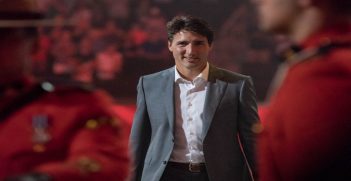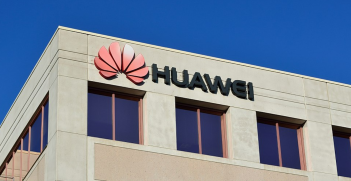Canada Has Lost Its Bid to Obtain a UNSC Seat

The Canadian bid to obtain a non-permanent seat at the UNSC was the cornerstone of the Trudeau international vision. It is now in shambles as a result of the continued weakening of political multilateralism, increasing European solidarity, and the opposition of China and Saudi Arabia.
On June 17, Canada lost a second consecutive bid to obtain a non-permanent seat on the UN Security Council. For its first bid in 2010, the Conservative government of Stephen Harper lost to Portugal and Germany. This time, Canada was unable to force a second round run-off as it obtained only 108 votes to Ireland’s 128 and Norway’s 130. This defeat is a serious blow to the leadership of Justin Trudeau and his minority Liberal Party government.
Election of non-permanent members to the UNSC is covered by Article 23 of the UN Charter. In addition to the five permanent UNSC members (USA, Russia, China, UK, and France), five of the ten non-permanent members are elected by UN members every two years in a secret ballot. The non-permanent members are divided as follows: five are African and or Asian states, one is from Eastern Europe, two are from Latin America, and the final two others are from European and other states. In between elections, states jostle for votes and often enter into informal agreements with others to mutually agree to vote for each other. These pacts are quite common and explain why UNSC vote getting campaigns need a lot of advance time to solidify a maximum of votes.
How did this happen to a G-7 and G-20 country, a member of NATO, the Commonwealth, and Francophonie, as well as a signing party to numerous important international and economic agreements around the world?
Liberal Party pundits shrugged off the stunning defeat, saying that Canada had entered the race late, European solidarity was insurmountable, and the COVID-19 crisis prevented Trudeau from meeting world leaders face-to-face to obtain their vote. For example, India, which won a seat this time, had long before tied up their vote with Ireland and Norway in a reciprocal agreement. While there is some truth to the pundits’ and spin doctors’ analyses, the reasons for the defeat go much deeper.
The Trudeau narrative is based on the view that the previous government led by Stephen Harper failed to obtain a seat because of its inappropriate foreign policy, such as one-sided support of Israel in all UN votes on the Middle East, or diminished foreign aid spending. However, this week’s result is the same and, in some sense, worse. In principle, the short comings of the previous Conservative government were supposed to have been corrected by a more balanced Liberal foreign policy. Yet in 2010, the result was closer and there was a run-off. In 2020, a run off was not even necessary.
What went wrong?
The world has changed and Canada’s foreign policy sclerosis is finally showing.
First, there is the American President Donald Trump. In less than four years, he has considerably weakened the entire multilateral system of alliances like NATO, international cooperation including the Commonwealth and Francophonie assistance vehicles, and the UN generally. Constant attacks on NATO members, climate change, and now international agencies involved in the COVID-19 crisis have wreaked havoc on Canada’s attempt to obtain a UNSC seat. The weakening of the global multilateral cadre is directly proportional to the value and experience that Canada could have brought to the table. In addition, instead of concentrating on obtaining votes in 2020 throughout the multilateral system, most of Trudeau’s first majority government was dedicated to the renegotiation of a trilateral commercial deal with the USA and Mexico amidst periodic crises leading to multiple sanctions on Canadian agricultural and steel products leveled by Trump.
Voting blocs like Europe have responded to Trump’s actions with even greater solidarity. This, too, has had a hand in the Canadian defeats. For both 2010 and 2020, Europe has been able to secure two seats at the UNSC table to the detriment of the other member states affiliated with Western Europe and other government (WEOG) candidates. This reaction to America’s attack on multilateralism will also have an impact on WEOG states like Australia and New Zealand seeking their turn at the UNSC table.
China was instrumental in blocking Canada’s campaign. The furor over Huawei Executive Meng Wanzhou’s arrest in Vancouver prompted by the Trump administration and the arrest of two Canadians in China, one an ex-diplomat, in reprisal have poisoned relations. The inability of Canadian foreign policy to adapt to the growing power and influence of China in the world is a testimony to the sclerotic state of Canadian diplomacy and foreign affairs. Many Latin American and African states no longer value Canadian international cooperation as China has replaced these revenue flows with new infrastructure loans to facilitate Chinese penetration of developing economies and political institutions. Venezuela, Argentina, Brazil, Ecuador, Congo, Ghana, Nigeria, Cameroon, Zambia, and many others are now in the Chinese camp, like it or not, and are impermeable to Canadian arguments about what it could contribute to the UNSC.
To be candid, both Norway and Ireland have better voting records on Middle East issues than Canada. Late in the game, Canada restored UN Works and Relief Agency funding to Palestinian refugees and began to vote on Middle East issues in a more balanced way. It was a losing gambit though, and Canada’s record does little to sway any Arab states with ideas about voting to help the Palestinians.
In the summer of 2018, the Canadian Ministry of Foreign Affairs sent a provocative message to Saudi Arabia regarding its human rights record. The tiff that ensued resulted in a permanent wound that the Canadian Liberal government made no effort to correct or nuance. Saudi Arabia is a rich country and it carries significant regional weight when it comes to a UNSC election.
Finally, another Trudeau gaffe during the last federal election in October 2019 (The Blackface Scandal) could not have come at a worse time. It certainly did nothing to help at a time of heightened awareness about racism and its noxious social impact.
What has happened?
The defeat can hardly be attributed to former PM Stephen Harper. Multilateralism has been dealt serious blows by the United States. The damage is significant and Canada’s UNSC defeat might be partly interpreted as collateral damage. However, the defeat in 2010 came before Trump took power, leading one to believe that the mercurial American president was not the only cause for the Canadian failure.
China’s economic hold on developing countries in Africa and Latin America is devastating. It has torn asunder any Commonwealth or Francophonie vision of international cooperation and assistance. Some developing Asian countries have been able to insulate themselves from the Chinese Communist state’s financial battering ram. In the meantime, countries like Canada and Australia need to rethink their relations with China, given Beijing’s dislike of any questioning of motives such as responsibility for the COVID-19 epidemic.
What needs to be done?
The WEOG grouping at the UN needs to be reconfigured so that countries like Australia and Canada do not become victims of strict European consensus.
Canada needs to address its own foreign policy sclerosis by re-evaluating its conduct and content of foreign policy with the USA and China
To act as a counterweight and avoid the Chinese juggernaut, countries like Australia and Canada need to structure a like-minded international political alliance with other democratic nations like Japan, South Korea, Vietnam, Taiwan, and India. This alliance should actively support opposition groups in Tibet and Hong Kong and materially assist the Uyghurs.
American President Donald Trump’s first term in office has exposed glaring flaws in the multilateral system, not the least of which is the urgent need for UN reform. A return to the heyday of multilateralism is illusory and democratic middle powers, who were supposed to benefit from that same system now shattered, need to take stock. States like Canada and Australia have been set adrift in a sea of change. Canada’s failed UNSC bid is just one example of the changing international context. Oddly enough, the growing power and influence of China can offer an opportunity for these democratic middle powers to move forward a shared and cohesive agenda of freedom and justice over and against Beijing.
Dr Bruce Mabley is the director of the Mackenzie-Papineau Group think tank based in Montreal devoted to analysis of international politics.
This article is published under a Creative Commons Licence and may be republished with attribution.





